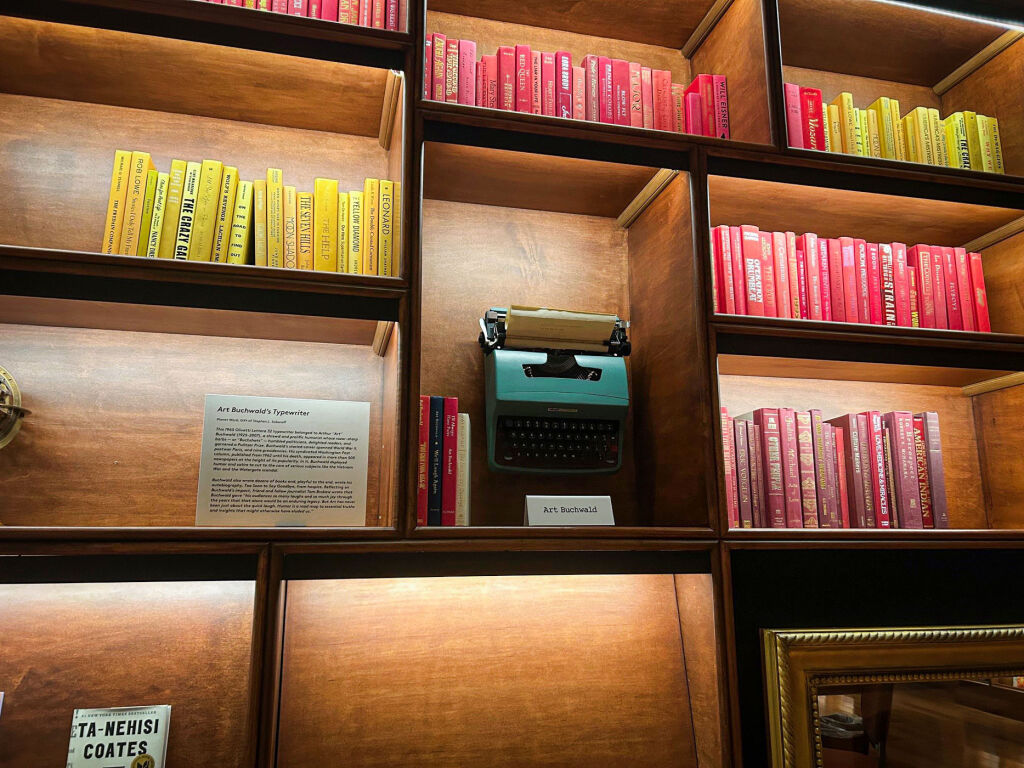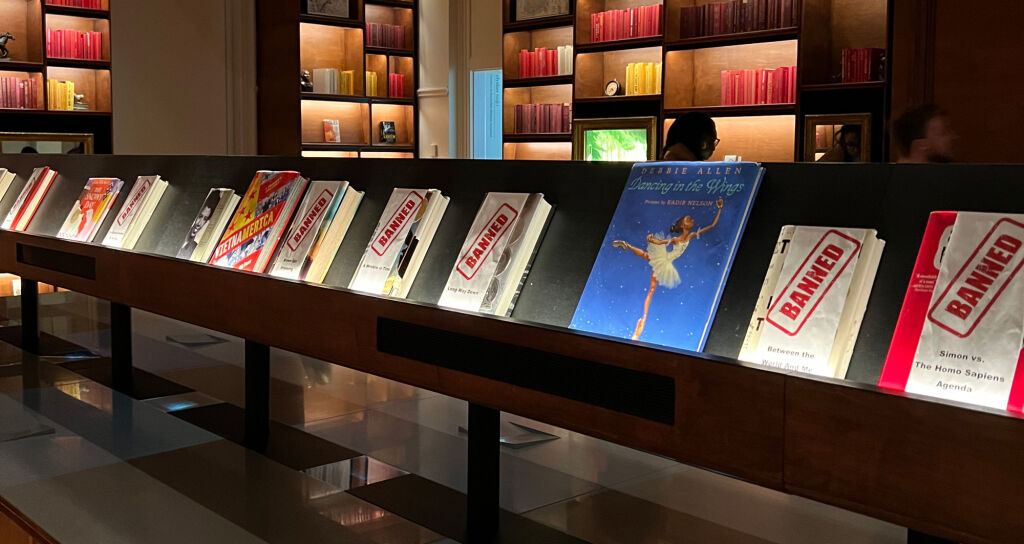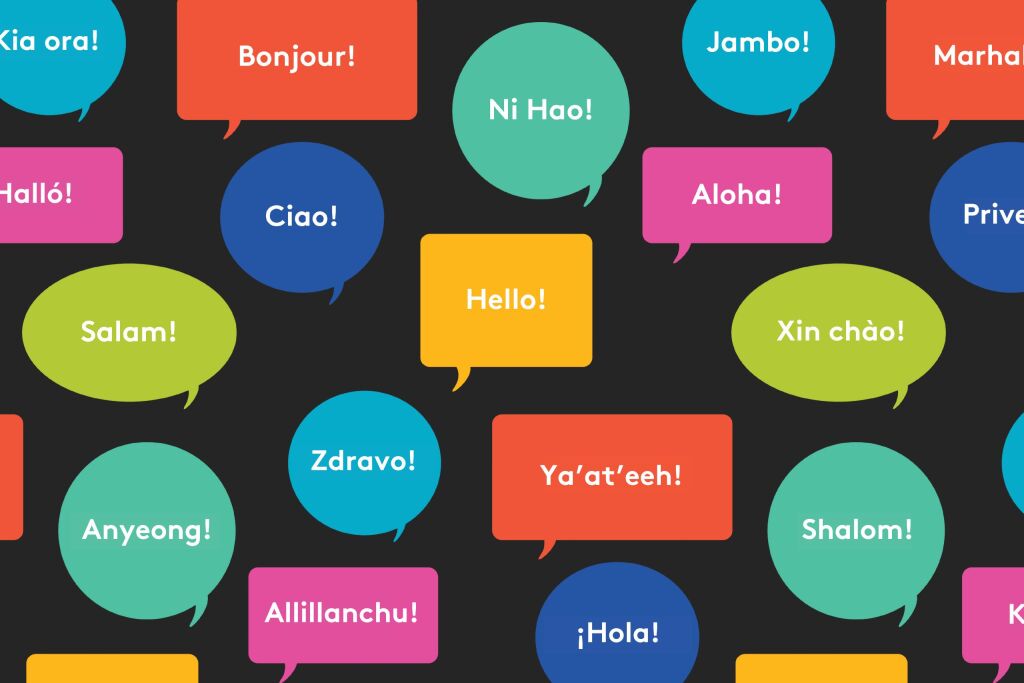The Language Science Station at Planet Word
The following is a guest blog post written by Dr. Charlotte Vaughn and Hannah Mechtenberg.
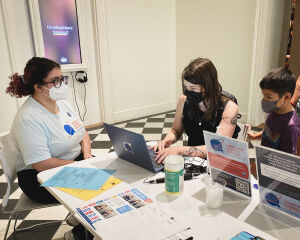
In this guest blog, we’re delighted to introduce you to the Language Science Station, a new project bringing research to Planet Word. The Language Science Station is a “living language laboratory” offering interactive language research studies and accompanying educational activities to Planet Word visitors. Planet Word, a museum that uniquely places language at center stage, is an ideal partner to host this research, with visitors already curious about language. Now, Planet Word visitors can also contribute to the creation of new knowledge about language! During certain hours, we invite museum guests to stop by our satellite stations located throughout Planet Word to talk with local university students and participate in real research studies.
Those of us on the project team have many reasons to be excited about the launch of the Language Science Station. As language science researchers — from disciplines like Linguistics, Hearing and Speech Science, and Psychology — we’re always seeking to ignite curiosity about language among new audiences, and to recruit participants for our research studies from beyond the bounds of a university campus.
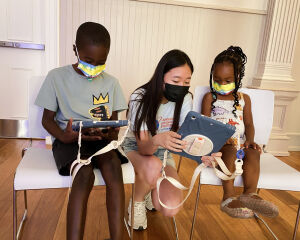
We’re also training the next generation of language scientists. We’ve welcomed a diverse and enthusiastic group of students who are building research and science communication skills as they interact with museum guests. Our first cohort of 15 undergraduate and graduate students are self-described “language nerds” from 7 DC area universities. They have an impressive range of majors, and a wide range of language backgrounds, including American Sign Language, Nepali, Spanish, Korean, and Portuguese.
Conducting language research at Planet Word requires a bit more effort than simply picking up our research studies from their typical settings in university laboratories and moving them to the museum. Many existing lab-based studies can take upwards of an hour and can honestly be a little boring! We’ve embraced the challenge of adapting our studies to be well-suited to the diverse backgrounds and ages of Planet Word visitors, making the studies short, fun, and educational for adults and children.
We will roll out new research studies over time. For now, we’ve started with three. Guess the Sign invites visitors to guess the meaning of signs in American Sign Language. In Race the Robot, visitors complete sentences as fast as they can. And, in E is for Expert, visitors tell us about a topic they know a lot about, and a topic they know less about. Each study investigates a different aspect of language using different tools, allowing visitors to learn something new at each station. We look forward to the data and the feedback we’ll get from museum guests, and to welcoming more researchers and research activities to join the Language Science Station in the future.
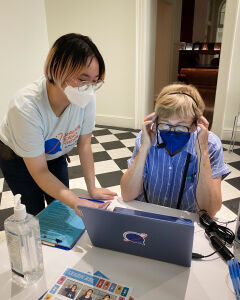
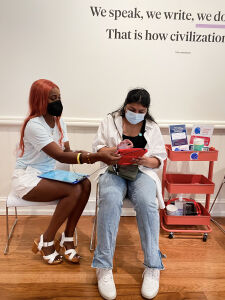
In our first two weeks at Planet Word, the Language Science Station interacted with over 450 visitors, with around 330 agreeing to participate in a study! Beyond the numbers, we’ve had many special individual interactions. From a student and a 6-year-old visitor spending 20 minutes together to learn the alphabet in American Sign Language, to a visitor bounding down the stairs and excitedly asking if we have another experiment they can do — every connection counts.
The Language Science Station is thrilled to be at Planet Word, and we look forward to continuing to learn about language with museum visitors! Please visit the Language Science Station website to learn more about the project and the larger research team. You can also follow us on Twitter and Instagram @LangSciStation for updates.
The Language Science Station is funded by an NSF collaborative award to University of Maryland (Principal Investigators Dr. Charlotte Vaughn and Dr. Yi Ting Huang, 2116959), Gallaudet University (Principal Investigator Dr. Deanna Gagne, 2116811), and Howard University (Principal Investigator Dr. Patrick Plummer, 2116932).
Dr. Charlotte Vaughn is an Assistant Research Professor at the Language Science Center at the University of Maryland, and the Director of the Language Science Station. Her research focuses on what listeners expect, understand, evaluate, and remember about others’ speech, particularly when that speech sounds different than their own. She has been involved in bringing language to the public for over 15 years, having previously served as a Science Communication Fellow at the Oregon Museum of Science and Industry, and coordinated outreach efforts at the Language and Life Project at North Carolina State University.
Hannah Mechtenberg is a PhD student at the University of Connecticut studying Psychology with a concentration in Language and Cognition. Her research focuses on how general cognitive processes like attention, effort, and reward affect how we understand speech. She created the Language and Brain Lab Digest to bring the latest in speech, language, and aphasia research to the public. She is also the recipient of an NSF fellowship to develop outreach strategies and opportunities for graduate students.

